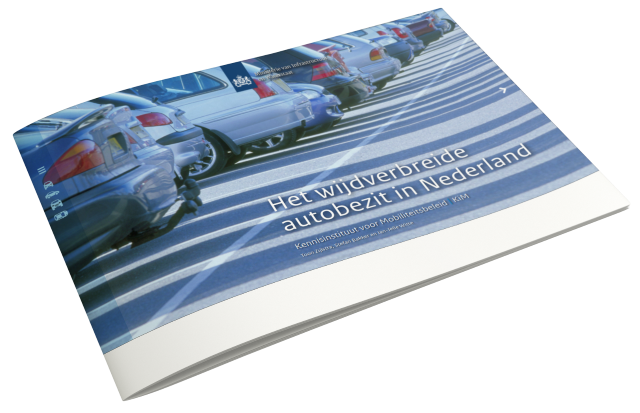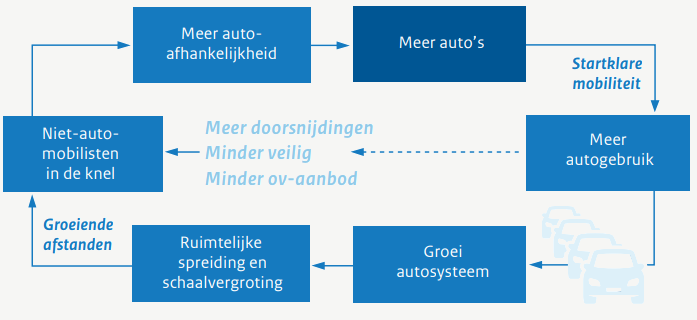Widespread car ownership in the Netherlands
People outside the major cities are increasingly reliant on cars, as distances to work, social networks, and amenities increase, and public transportation offers less and less of a viable alternative.
In the major cities, the appeal of cars is diminishing due to numerous alternatives to private vehicles, parking regulations, and reduced time savings when traveling by car. While private car ownership per capita in urban-center areas has decreased in the past decade, car ownership in more rural areas has clearly risen. A similar trend is evident regarding car usage. These are the conclusions drawn by researchers from the Knowledge Institute for Mobility Policy (KiM) in the publication ‘Widespread Car Ownership in the Netherlands’.


The vicious circle
The vicious circle of car dependence describes the process by which increased car mobility leads to even more car mobility, as we have seen primarily in Anglo-Saxon countries in the past. We introduce the principle and then demonstrate that this circle applies to a limited extent in the Netherlands.
Where car ownership was once a choice, it has now become increasingly a necessity. The car becomes the key to social participation, leading more and more people to acquire one. Thus, the circle is complete.
